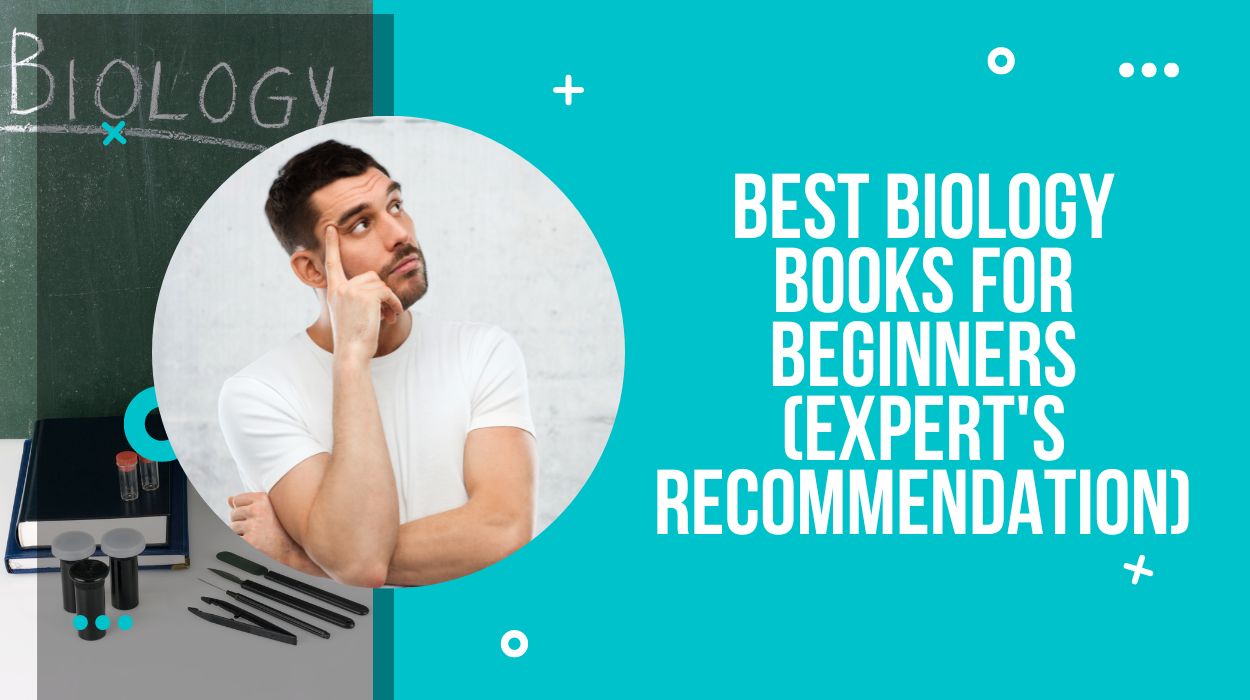This is a great article to read for those who want to learn more about the human body and what goes on inside it. By reading through this, you will learn how to find the best books that more detailed and in-depth go over much of this information. We will also discuss what topics are discussed in these books so that when you need information, you can see if one of these books has it in it already or if not, perhaps one of them will lead you to another book that does have the information you’re looking for.
Biology is a general, broad topic. There are many different aspects to this field, and it can be hard to keep up with them all when you first start your studies on this topic. That’s why there are many different ways to find the best books to learn more about the human body and what goes on inside it.
How to find the right book as a beginner in biology?

1. Find a book that’s right for you
Before you start searching for the best biology books for beginners, it’s essential to find a good one that goes along with what you want to learn. The book’s content is essential, but not as much as its appeal.
If you’re looking to learn more about human body systems and anatomy in order to get the greatest bang out of each buck.
2. Understand what topics are discussed in these books
It would help if you chose a biology book that has all of the information you’re looking for in it. For instance, many books go into detail about human anatomy; however, some do not. If you want to learn more in-depth about the human anatomy of the muscles, joints, bones, and nervous system.
3. Use references
We should take advantage of others’ experiences and knowledge. This can be done by going over what others have said about those particular biology books. It will help if you read through reviews or articles that point out their good and bad points to decide which ones are right for you. Don’t just take one person’s word for what they’ve said about the book. Look at each person’s opinion and see if they have a lot in common. Look for trends between what people have said about the book in order to decide better which ones to look at first.
4. Make sure that you are checking out books from a reputable source
If you’re buying a biology book, make sure you’re using a reputable source. There are a lot of scam artists out there that try to make profits off of others.
5. Consistency is key
In order to find the best biology books for beginners, it’s vital that you keep up with the information throughout your studies. Making sure that you read through all of the books that went over certain parts of human anatomy or specific topics gives you a better understanding of what you were going over altogether and what goes on inside your body.
Best biology books of all time for beginners
1. The Immortal Life of Henrietta Lacks
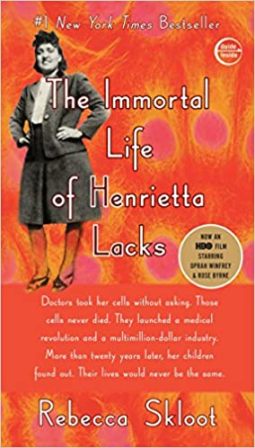
The Immortal Life of Henrietta Lacks is an award-winning book by Rebecca Skloot. The book chronicles the life of Henrietta Lacks, a poor, African American woman who worked as a tobacco farmer in Virginia. On October 4, 1951, she died of unknown causes (non-Hodgkin’s lymphoma was not identified). Her cancer cells were taken without her permission and went on to become the first human cells grown in culture; they were subsequently named “HeLa” cells.
The book is about how Henrietta Lacks’s family dealt with her extraordinary legacy that changed medicine and research for centuries to come, and they didn’t even know it.
2. The Selfish Gene
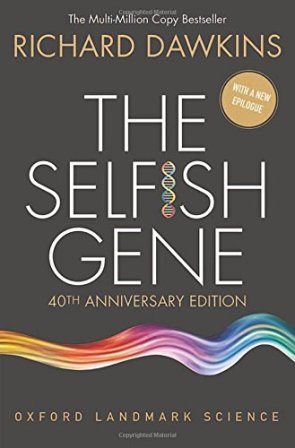
The Selfish Gene by Richard Dawkins is one of the most influential books in modern biology. It has contributed to popularizing evolutionary perspectives on psychology, sociology, and behavior genetics. In The Selfish Gene, Dawkins builds upon earlier insights from animal behaviorists such as Konrad Lorenz and Robert Ardrey that understanding social behaviors requires understanding our origins as a social species descended from cooperative societies of hunter-gatherers. He demonstrates how natural selection and sexual selection forces have shaped human society so that we essentially live according to rules similar to those found in animal societies.
3. Sapiens
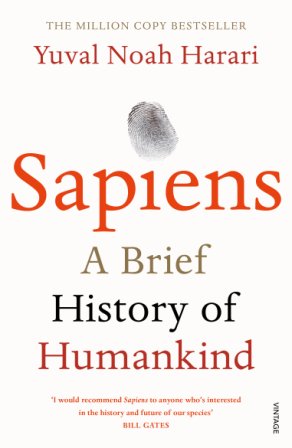
Does the idea of studying human history sound like something you would instead not do? Fortunately, Sapiens: A Brief History of Humankind by Yuval Noah Harari may be the book for you. This exhaustive and, at times, the controversial book is a treasure trove of information on how our species has evolved and how we ended up where we are today. It will be an eye-opening experience and should make history seem much more relevant to you than it ever was before.
If history seems too daunting to read, don’t despair! The author has also written multivolume series on each particular period in human history, so there are plenty of places for you to continue learning about your favorite parts of the past.
4. The Origin of Species by Means of Natural Selection
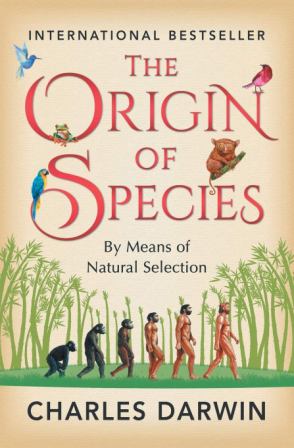
Charles Darwin is widely regarded as one of the greatest scientists in history, and The Origin of Species is widely considered a landmark publication in scientific literature. According to Google Scholar, this book is the most cited book ever published, with almost ten million citations. This work is perhaps the most important biological work of all time, and it has irrevocably changed the scientific field forever. The central concepts in this work are now taught to all students who enter into higher education today.
Later editions would change this to follow his understanding that species are not fixed and are constantly changing over time. In a biological context, the term “race” refers to a subspecies or group within a species that has distinguishable traits but still belongs to the same species.
5. The Sixth Extinction
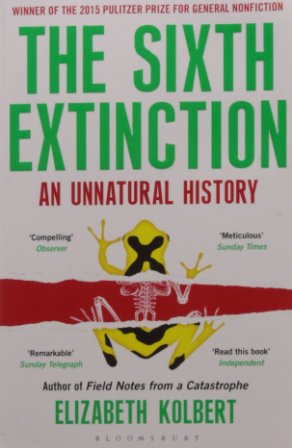
The Sixth Extinction: Elizabeth Kolbert’s timely, immensely gripping examination of extinction, the fate of the Earth’s other species, and the coming “great dying” are beautifully written.
Elizabeth Kolbert’s The Sixth Extinction reminds us that today we are living through what may be one of Earth’s most significant mass extinctions. A thoughtful exploration of how humans threaten natural ecosystems, how species go extinct and disappear from our planet forever, and what other means there might be to avert this climate change if we’re too late for a change. It intelligently addresses many issues and comes with a reading list at the end you should make serious time for.
6. Behave
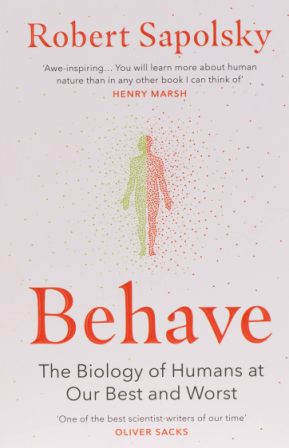
Presumably, the title refers to the book “Behave: The Biology of Humans at Our Best and Worst” by Robert M. Sapolsky.
Every action is a result of one motivation or another; it’s just that some motivations are stronger than others. In his recent international bestseller, award-winning neuroscientist Robert Sapolsky explains why we do what we do–or rather, why we don’t do what we should. Drawing on cutting-edge research and case studies from around the world and from his lab, Sapolsky shows how an understanding of our fundamental biology can help us make sense of our lives and those around us–whether we understand ourselves or not.
Robert M. Sapolsky is a professor of biology at Stanford University and a senior fellow at the Kauffman Foundation. He is the author of “A Primate’s Memoir: A Neuroscientist’s Unconventional Life Among the Savages,” published in March by Viking, and “neurology .” He is also the author of “The Instinct to Moo: What Evolution Can Teach Us About Being Human,” which was published in April by Ecco Books.
7. Why We Sleep
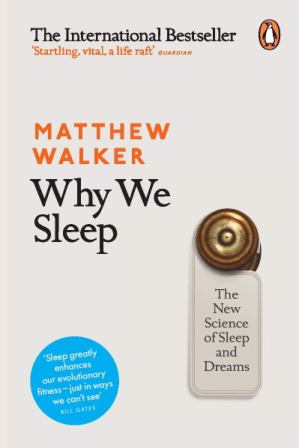
Many people know that sleep is essential, but it’s not nearly as well understood why. The healthiest and most successful people consistently get their recommended 7-8 hours of sleep a night. In this thought-provoking book, published in 2017, cognitive neuroscientist Matthew Walker argues that our sleeping habits are primarily based on evolution. In the seasons during which food was scarce due to droughts or local extinction events, humans needed to stay awake for long periods hunting for prey to survive. This required an extended period of waking after a long stretch of sleep—a pattern called ultradian rhythmicity (or “ultradian wakefulness” for short).
Walker makes it clear that “sleep is not the opposite of waking, and a lack of sleep is not the same as a lack of rest or being lazy. It does not diminish our mental abilities.” If you’re serious about your health and wellness, sleep is an essential factor in your overall well-being, but only within reasonable limits. We all need to find our optimal rhythm between sleep and wakefulness.
Matthew Walker’s new book is considered one of 2017’s must-read books on sleep habits, with 5-star reviews from readers worldwide. It’s now available for purchase from www.amazon.com.
8. The Gene
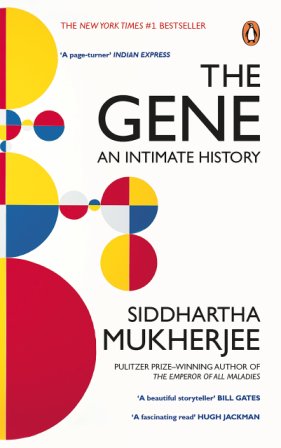
The Gene by Siddhartha Mukherjee is the Pulitzer Prize-winning author’s attempt at summarizing this vast subject into one single book. It is an ambitious undertaking that spans ten centuries of Western science. Still, Mukherjee succeeds where others have failed because he has something that few others do: he has intimate knowledge about this field not just as an observer but also as someone who’s subjected himself to its disciplines. As his first book demonstrates so well in exploring cancer and human development, his training as a physician enables him to provide detailed descriptions of complex concepts without oversimplifying or sounding clinical.
9. Your Inner Fish
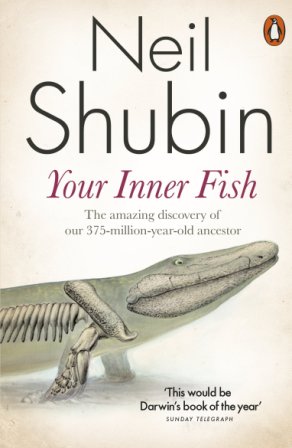
Imagine you are a tiny fish looking at yourself swimming around in your tank with amusement. You are so small that you can see yourself less than one-tenth of an inch away — never mind as much as 10 times your size! How would it feel? It would be pretty cool, that’s for sure. So, this is what the post’s author is doing — he compares a tiny fish to us humans — our inner fish.
The book “Your Inner Fish” has quite a few interesting facts: For example, you have scales! Well, that’s not very unexpected for a fish. But what about this fact: your scales are just tetrapod skin tissue that degenerates. The same thing happens when you lose your fingernails (and other parts of your skin) in case of an accident or when someone loses their hair for multiple reasons (stress, medication, birth control pills, etc.). Another amusing fact is that half of your facial muscles are derived from these same faces muscles.
10. The Blind Watchmaker
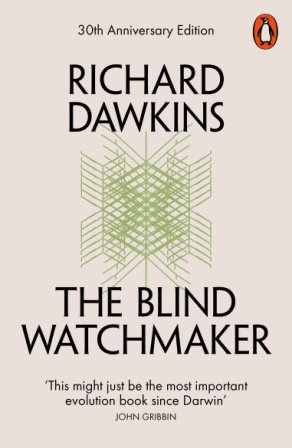
“The Blind Watchmaker” is a science book by Richard Dawkins. It challenges the view that living things work like watches, shaped by natural selection and adaptations over long periods of time. Dawkins argues that living things are more like engines: made up of parts that have no specific function, such as “machinery for making sperm.”
The Blind Watchmaker is an essential contribution to evolutionary theory, in which Darwin’s theories about natural selection were not the only necessary element for understanding how evolution works. This book primarily examines life on Earth and illuminates how evolution has created many different life forms from just one “simple primordial microbe.” Dawkins is a biochemist and geneticist with a doctorate from the University of Cambridge, England. He is one of the most prominent scientists who has written about evolution and his own life within it for a popular audience.
11. Genome
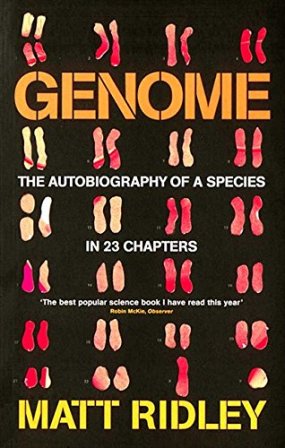
In Genome, Matt Ridley uses clear language and stunning illustrations to tell the story of the most crucial breakthrough in biology since Darwin. In fact, it could be a subtitle for this book: “The Story of How Our Ancestors Mapped Life’s Code and Applied Information Theory to the Living World.” But it is so much more than that.
Matt Ridley begins with a brief history of genetics from Mendel, through crackpots like Lamarck and Lysenko, up to today’s DNA-based understanding of evolution by natural selection. Drawing on his deep knowledge of evolutionary biology and genetics, he quickly shows how the simple idea of a genetic blueprint has profound implications for everything from the origin of species to matters of human health and medicine.
As the technology to read DNA has become available, Matt Ridley and company have gone wild. Here is a taste: “By contrast, when reading the genome, one moves along an arc that bends rapidly downward into darkness. That is because there are no more genes.” “The genome is not just a codebook but also a genealogy. In other words, evolution has been happening all along in terms of chemical evolution when it comes to what we can do with our bodies.”
12. The Greatest Show on Earth
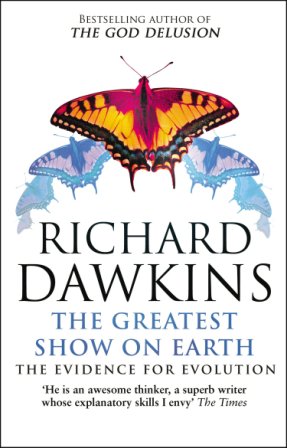
“The Greatest Show on Earth” is Dawkins’s first non-technical book entirely about a subject outside of biology. The focus is on Dawkins’s firmly held views on religion, drawn from personal experience and historical precedent. His main argument against religion is that our reliance on faith has diminished to near-irrelevance with the advances in science and engineering. Due to this critical need for religious beliefs, we have become more “godless.” This explains the predominance of atheism today, which has never been stronger than it is today.
Chapter 4 talks about how Christians claim that their beliefs are historically accurate. He then goes on to explain the three central claims of historicity made by Christians: Jesus was born under Augustus Caesar, Pontius Pilate was the governor of Judea, and Jerusalem in this era was over 90% Jewish (dismissing Christian claims that Adam and Eve were buried under the Dome of the Rock). He has also expressed his views on the Bible as a collection of mythological stories with no apparent historical record or value in a modern context.
13. I Contain Multitudes
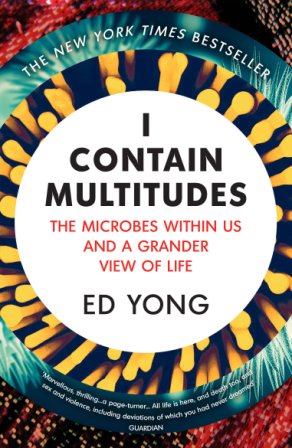
If you’re human, you’re a microbe. Every one of your cells contains microscopic organisms, some trillions strong. You are not just what you eat; you are what you are eaten.
Ed Yong’s new book I Contain Multitudes is an exploration of the vast world of microbes that inhabit our bodies and shape our lives. Weaving together the latest research in microbiology with careful personal storytelling, Yong takes readers on an extraordinary journey through our natural history and its surprising implications for our very sense of self.
Yong’s writing is clear and engaging, filled with the sort of personal anecdotes that bring science to life. By focusing on the microorganisms in your body, I Contain Multitudes is a book that will appeal to scientists and non-scientists alike.
14. The Emperor of All Maladies
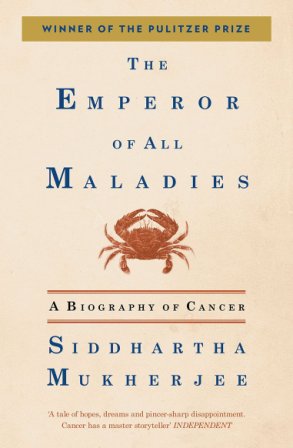
The Emperor of All Maladies is a biography of cancer in the United States, written by Siddhartha Mukherjee, Nobel Prize-winning author of The Gene and The Emperor of All Maladies. It follows the history and science behind cancer from ancient times until today.
Mukherjee’s book is a comprehensive history of cancer, from the earliest attempts to understand how it worked to the latest breakthroughs in treating it. The medical section of the book explores epidemics and cancer throughout history, from ancient times until today. The historical section captures the critical periods that have produced major technological innovations as well as advances in medicine.
“This book is an enjoyable read (I was able to hold a conversation while I was reading).” The last chapter examines alternative therapies, including clinical trials of chemotherapy and immunotherapy in the United States that the FDA poorly regulates.
15. The Hot Zone
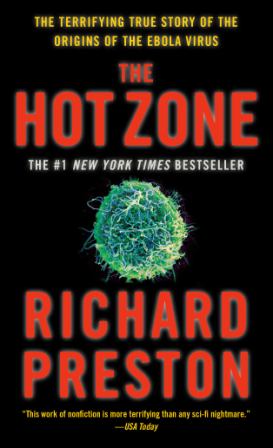
In this time of swift global change, RICHARD Preston’s The Hot Zone is an eye-opening revelation about the most lethal creature on Earth: man. In dissecting one of the most frightening biological catastrophes imaginable – the emergence of a new disease – Preston makes sure we understand its unparalleled power to kill indiscriminately and infect others without warning.
Knowledge gained from this odyssey into a nightmare helped identify the Ebola virus in 1989. The Hot Zone tracks the scientists as they fall victim to the disease one by one. The result is a horrifying story about an actual virus that exists today and will exist in the future. And it is a story of enormous implications for all of us.
It is an account of man’s first brush with an infinitely more efficient killer than anything nature has produced, a deadly enemy armed with a ferocious arsenal: stealth, speed, surprise… and ruthlessness.
The Hot Zone weaves together two narratives – one a riveting tale of science, suspense, and tragedy; the other a stunningly vivid narrative about animals that walk backward and kill for pleasure.
16. Guns, Germs and Steel
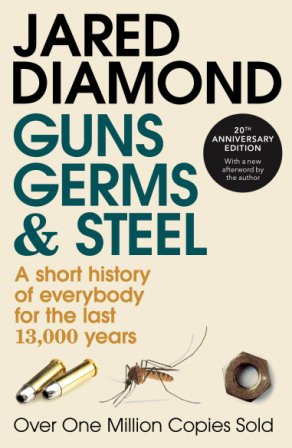
Guns, Germs and Steel is a Pulitzer Prize-winning book by Jared Diamond that successively tackles a number of important questions about the differences in social and technological development between human societies.
In the book, Jared Diamond attempts to explain the gaps in global technological and social development. He discusses why Eurasians developed technology and social systems far more advanced than any other culture. For example, he explores why China and the Western world were able to introduce mechanized farming techniques, while societies in Africa and New Guinea were not. He also points out that Native Americans had no domestic animals apart from llamas, no wheels for transport, and none of the metals needed to develop a metal-based economy.
Conclusion
So these are some of the best biology books for beginners. The one you choose, make sure to do some research and find out the right one. Also, these books can be found at Amazon and even Flipkart at cheaper costs.

